Rapid assessment for the prevention and control of Foot and Mouth Disease (FMD)
Food and Agriculture Organization (FAO)
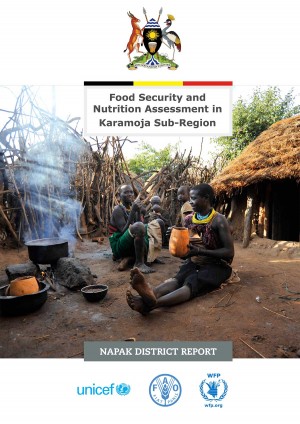
Food Security and Nutrition Assessment in Karamoja Sub-Region – Napak District Report
Napak is one of the districts in the Karamoja sub-region faced with chronic food insecurity coupled with high levels of malnutrition that are of public health concern.
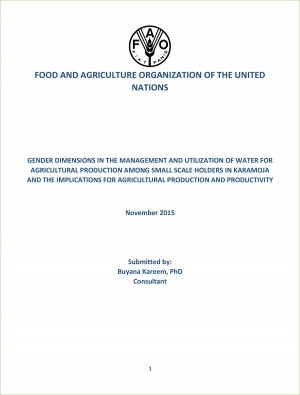
Gender Dimensions In The Management And Utilization Of Water For Agricultural Production Among Small Scale Holders In Karamoja And The Implications For Agricultural Production And Productivity
The report presents desk review findings on the gender dimensions of water for agricultural production, with a focus on Karamoja sub-region in northeastern Uganda, under four thematic areas: i) the gender dimensions of leadership and technical roles at community level; ii) gender considerations in construction, repair and mantainence of water facilities; iii) gender roles in the use of water for agricultural production and productivity; and iv) the implications for agricultural production and productivity. The report seeks to inform the implementation of FAO’s Gender Equality Policy (2013).
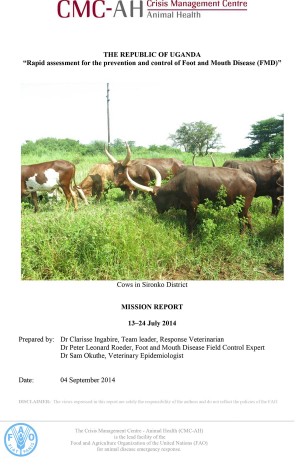
Rapid assessment for the prevention and control of Foot and Mouth Disease (FMD)
Assist the Veterinary Services of Uganda to assess FMD, and suggest enhancements to prevent further spread; examine and advise on strategic interventions to be implemented, and future coordination; develop a detailed short and medium term action plan for resource mobilization at national and regional levels.
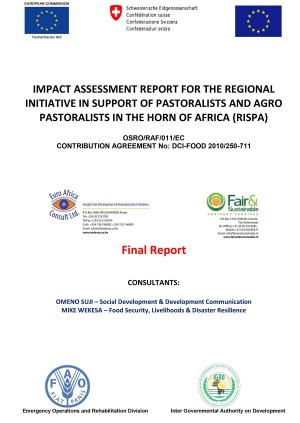
Impact Assessment Report for the Regional Initiative in Support of Pastoralists and Agro Pastoralists in the Horn of Africa (RISPA)
The report presents the relevance of the RISPA project to pastoral and agro-pastoral livelihoods in the HoA; its implementation performance; effectiveness in achieving expected results; efficiency; cross-cutting issues; impact; key issues/lessons learned from implementation and makes recommendations to be considered in future. The Project supported community action plans, government coordination structures and regional policies/ institutions in support of pastoral livelihoods in order to strengthen the resilience of agro-pastoral and pastoral communities and to diversify their livelihoods strategies and options.
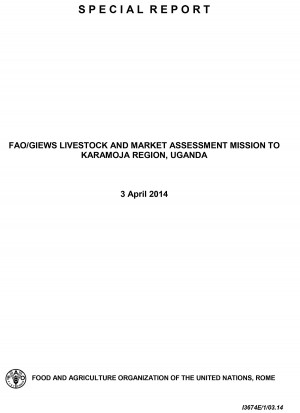
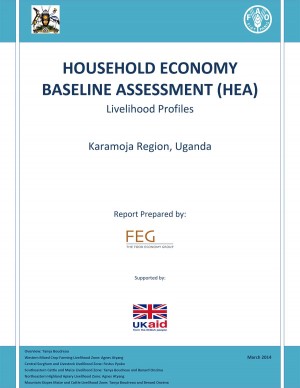
Household Economy Baseline Assessment (HEA)
This assessment was conducted in order to provide a solid base of livelihoods-related evidence to inform a 27-month (October 2013 – December 2015) FAO-implemented project in Karamoja sub-region titled “Strengthening Adaptive Capacity of Agro-Pastoral communities and the Local Government to Reduce Impacts of Climate Risk on Livelihoods in Karamoja, Uganda.
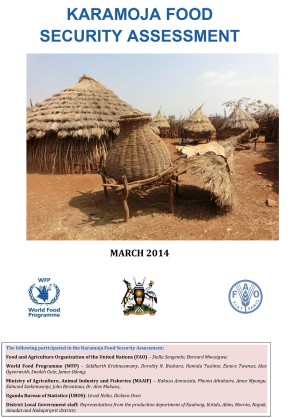
Karamoja Food Security Assessment
February 2014 assessment of food security for the region. The main causes of current household food insecurity in Karamoja can be attributed to a combination of reduced access to food and insufficient food production (availability) across the region.
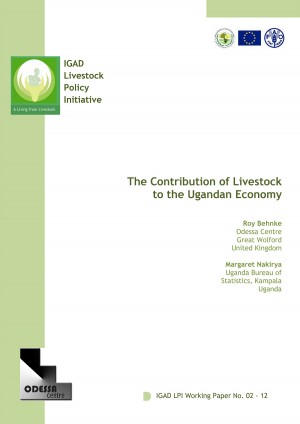
The Contribution of Livestock to the Ugandan Economy
This is the fifth in a series of reports on the contribution of livestock to the economies of the IGAD member states. Building on methodologies developed in earlier studies of the role of livestock in the economies of Ethiopia, Kenya and Sudan, the present report undertakes an assessment of the contribution of livestock to Uganda’s national economy.